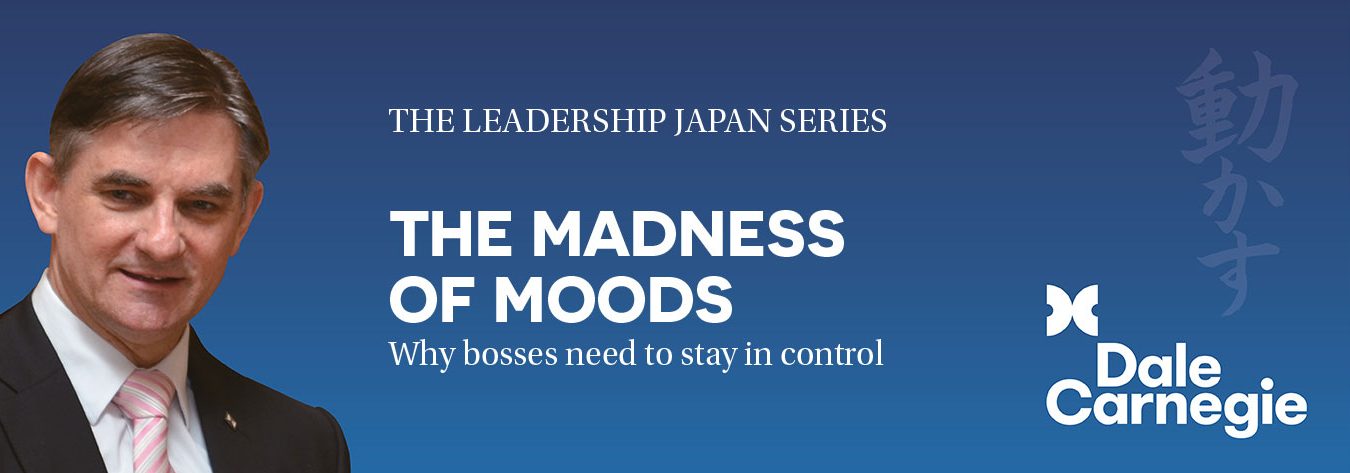Are you moody? You might say no. You probably see yourself as an upbeat individual, smoothly navigating your way through the workday. Good, but the workplace is roiling with confirmed, card carrying boss watchers. They have their antennae out every time you appear, gauging the risk level of any interaction with you today.
Should I raise that project possibility, talk about the budget, have that revenue results discussion, etc., they think. They have been studying your body language, your gait, face and voice with such intensity that they can easily distinguish your mood on any given day and throughout the day.
So if you are troubled, have you been a sufficiently skilled actor to mask the emotions coursing under that bespoke suit? We radiate information to our team regardless, but do we maintain our equilibrium when everyone around us is losing theirs? When everyone is panicking, are we an amplifier or a suppressor?
We are the boss, so we set the tone for the day. If we are up, we have a much better chance of taking everyone else up with us. Conversely, if we are worried, concerned, down, then we drag the entire crew towards the bottom. The scary part is how hard it is to draw them up and how quickly we can sink their boat.

Keep control
Are we circumspect in what we say? If we awake in the morning and the look of the sky determines our mood, how much control are we exercising? The sombre rain clouds, driving sleet or ice-cold snow may encourage us to whine about what a “lousy” day it is.
Alternatively, crisp blue skies and lovely fluffy white clouds under a gorgeous warm sun might make us comment, “What a beautiful day”. Both are dangerous statements. Both tell everyone that it is acceptable for our mood to be randomly controlled by the weather.
We have to be the sunny boss every day, regardless of meteorological conditions. We don’t discuss the weather at work with any judgmental comments. We might note it is raining, so we need to take our brolly, but that is as far as we are allowed to stray.
There are other moods we need to be vigilant about. If the mood doesn’t grab you, are you procrastinating on doing certain unpalatable tasks? Especially those you find difficult, boring and time consuming, or that require you to really think hard? When you scan your well considered priority list for today’s assault on the workload, and you find that a certain item has crept to the upper reaches of the to-do pile, do you inwardly wince?
Are you frantically looking for an escape route? Maybe a quick diversionary attack on the email, social media, papers scattered on the desk or that phone call you need to make. In other words, every possible thing other than the irksome burden in front of you. Do you feel your spirited, happy mood start to fade as the reality dawns that massive pain is inbound?
What about when people let you down? The news arrives that a certain item hasn’t been completed on time, on budget or to the required standard by one of the team. You were hurtling down the highway of happiness, fully charged with control of your day, and now this train wreck appears on the horizon to derail your positive mood.
Respond, not react
The boss is not allowed the luxury of reacting. As the boss, you can only respond. That means engaging both the head and the heart. It means super control over your moods, so as to intentionally have an impact on both yourself and your team. The discipline to do the things you need to do and when you need to do them is the objective. The boss is not perfect, but has to appear so to everyone else attached to the oars on the galley deck.
Engaged employees are self-motivated. The self-motivated are inspired. Inspired staff grow your business, but are you inspiring them? We teach leaders and organisations how to inspire their people. Want to know how we do that? Contact me at greg.story@dalecarnegie.com







